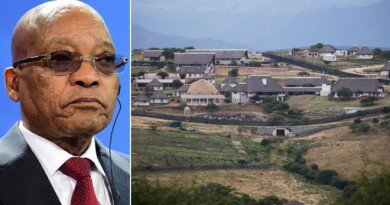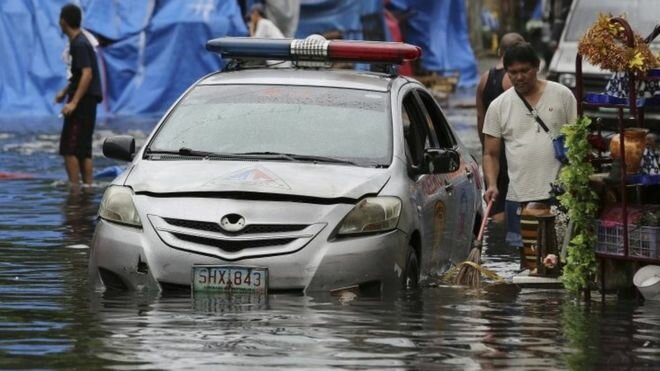South Sudan attack ‘could hinder aid deliveries’
By BBC
Aid agencies say the “shocking” killing of six aid workers in South Sudan on Saturday is causing them to re-assess how and when they can deliver supplies.
The victims were ambushed by unknown attackers when travelling between Juba and the town of Pibor to the northeast.
Oxfam said the attack “demonstrates how dangerous it is here” and was leading agencies to re-evaluate “what is mission-critical and what is not”.
Aid deliveries would continue but could be delayed, it said.
The latest fatal attack on humanitarian workers came a month after famine was declared in parts of Unity state in northern South Sudan.
The UN says the famine – the first to be announced anywhere in the world in six years – is man-made, resulting from a political conflict that escalated into war in 2013.
Some of the areas worst affected by food shortages are seen as sympathetic to rebel groups and critics of the government have accused it of blocking aid deliveries. South Sudanese officials deny this.
Oxfam humanitarian campaigns manager Dorothy Sang, who is in South Sudan, told the BBC it was “one of the most difficult countries to operate in right now”.
She said attacks on aid workers “unfortunately aren’t uncommon” – 12 have been killed this year alone and there have been a number of other, non-fatal attacks on aid convoys and warehouses.
She said Oxfam would continue delivering aid but was reassessing how this could be done with least risk.
Transporting aid by road was now “extremely dangerous” and agencies were considering whether they could step up transportation by air, and whether risks on the road could be reduced by aid organisations travelling in convoy.
This re-evaluation of risks could mean that aid deliveries were delayed, Ms Sang said.
“The brutal killing… has sent shockwaves through us all,” said Care International country director Fred McCray. “It is unacceptable that those trying to alleviate the suffering… are attacked for what they do.”
- 100,000 facing starvation
- Further one million on brink of famine
- 9 million (42% of population) severely food insecure
- 207,000 children suffering severe acute malnutrition
- Inflation as high as 800% year-on-year
- The UN also warning of possible famines in north-east Nigeria, Somalia and Yemen
Source: World Food Programme
The Disasters Emergency Committee (DEC) programme director for South Sudan Monica Blagescu said: “This is the crude reality of the situation in South Sudan, where humanitarian workers put their lives at risk while providing life-saving assistance to people affected by conflict and drought.
“Those in a position of power must step up to their responsibilities and stop such heinous incidents from happening again.”
In many cases of assaults on aid agencies, it is not known who the attackers are. There are many armed groups in South Sudan, engaged in a battle for power and resources.
South Sudanese rebels have blamed government forces for the killings on Saturday.
A spokesman for the Sudan People’s Liberation Movement – In Opposition, which is led by former Vice-President Riek Machar, condemned the attack and called for an investigation.
“The area where this barbaric incident took place is under the control of [the] Juba regime and its militias,” the spokesman, Paul Gabriel Lam, was reported by the Paris-based Sudan Tribune as saying.
The government has said it is too early to say who was behind the attack and it would be “counterproductive” to assign blame “at this stage”.
‘No guns’
Grieving families went to the morgue in Juba on Monday to collect the bodies of their relatives.
“This is very painful for all of us,” Levis Kori, whose 30-year-old brother John Riti was killed in the attack, told AP new agency.
“They were humanitarians there to do good. They’re not soldiers, they have no guns.”
The attack comes at a critical time for aid agencies in South Sudan, which are trying to pre-position stocks in key areas before the expected arrival of the rains in the coming weeks.
The rainy season makes access much harder for aid agencies and brings greater risk that malnourished people, already vulnerable to illness, will catch water-borne diseases.
The DEC has warned that “a toxic mix of drought and violent conflict” means South Sudan is now the world’s fastest growing refugee crisis.
It says 6,000 people a day – equating to four people a minute – were forced to flee to neighbouring Uganda last month.
There are now more refugees fleeing to Uganda than across the Mediterranean, the DEC says.






